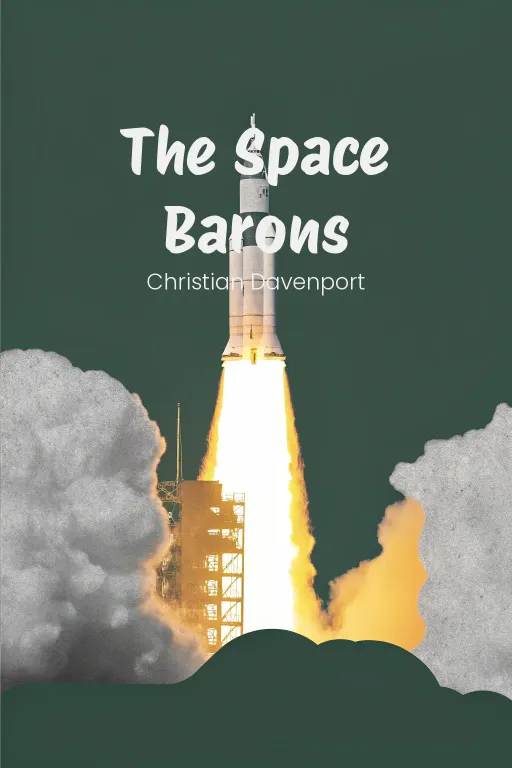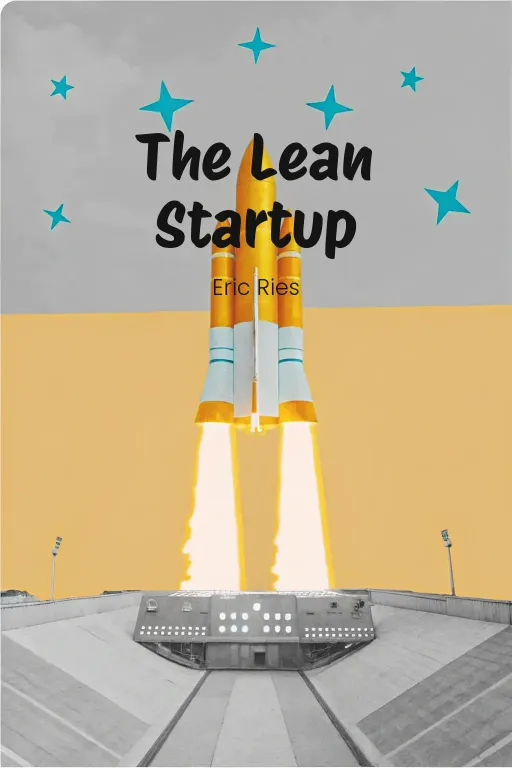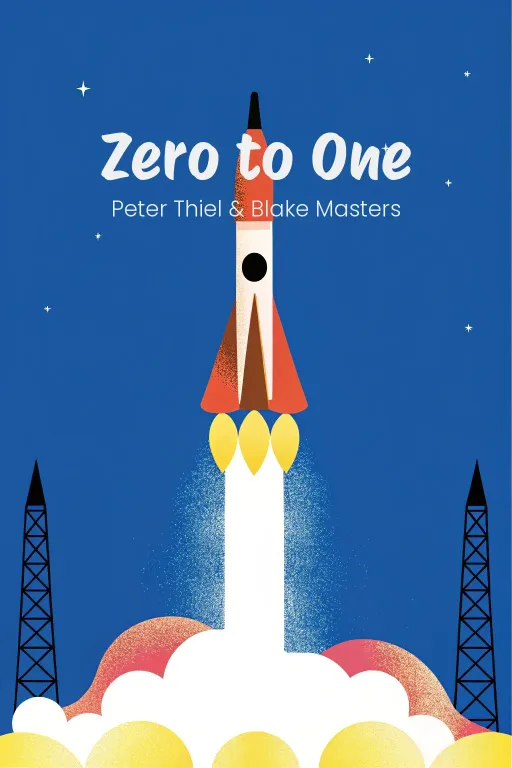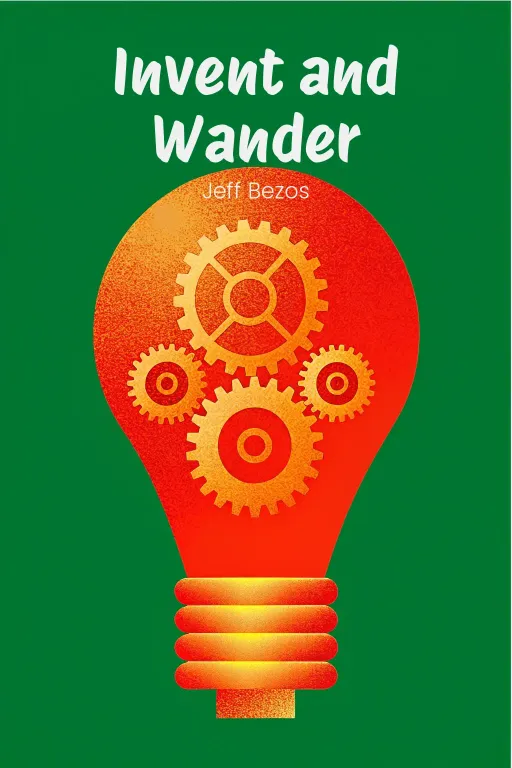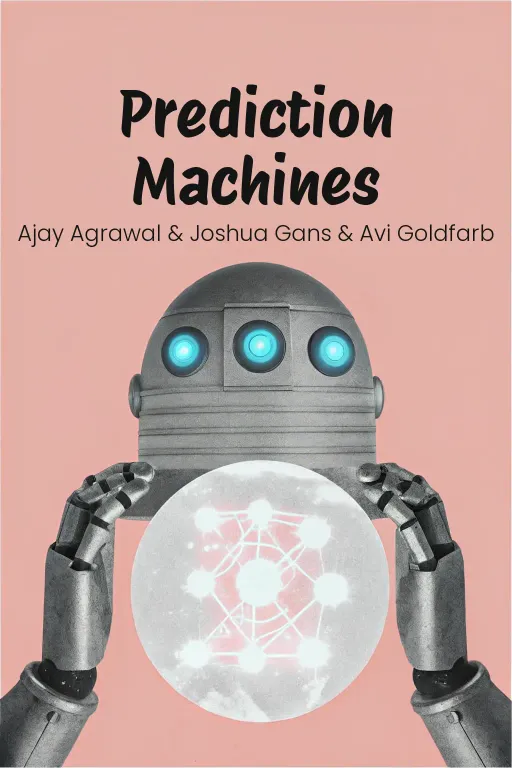
Space Race 2.0: Risks & Rewards?
Podcast by Let's Talk Money with Sophia and Daniel
Elon Musk, Jeff Bezos, and the Quest to Colonize the Cosmos
Space Race 2.0: Risks & Rewards?
Part 1
Daniel: Hey everyone, welcome to the show! Today, we're launching into one of the most exciting revolutions of our time – it's about how humanity's going from just looking at the stars to actually reaching them, can you believe it? Sophia: Yeah, and if that sounds a little over the top, just wait till you hear about the billionaires who are basically in a race to grab a piece of the cosmos. Because it's not just governments launching rockets anymore. Daniel: Exactly! In Christian Davenport's “The Space Barons”, we meet some of the biggest dreamers and game-changers of this new space age. Think Elon Musk, practically obsessed with making us a multi-planetary species, and Jeff Bezos, who sees Earth as this pristine preserve while we expand out into space. Sophia: Right, they are not the only character. Don't forget Richard Branson with his space tourism idea, and lots of other private companies that are also involved. Really it’s a story packed with wins, rivalries, and, well, a few spectacular crashes along the way. Daniel: Absolutely. It's a look at how these visionaries are turning sci-fi into reality - building rockets that can be used again and again, planning settlements on Mars, and even thinking about setting up shop on the Moon. It's also a story about drive, bouncing back from setbacks, and turning crazy dreams into real breakthroughs. Sophia: So, today we're going to dig into three main ideas from the book. First, let's talk about these dreamers – who are they, and what makes them want to shoot for the stars? Second, the rockets themselves – how is new tech changing what we can actually do? And third, the stakes – because things can get complicated for us down here when billionaires start reaching for the sky. Daniel: Exactly! So, whether you're a complete space geek or just wondering how all this might affect us, there's a fascinating story here. So, let's dive in!
The Visionaries Behind Modern Space Exploration
Part 2
Daniel: Okay, so picking up where we left off, let's dive into the key players here – these visionaries who are really trying to change how humanity sees space. What I appreciate about The Space Barons is that it doesn't just highlight their wins. It really digs into what drives them, where they come from, and why they're willing to risk everything on space. Sophia: Exactly, and what's fascinating is how different their motivations are. Take Elon Musk, for example. He's not just launching rockets because, you know, it’s a cool thing to do. He sees it as vital for our species’ survival – pushing for Mars colonies like there's this urgent doomsday clock ticking. Daniel: Exactly! Musk has been very open about how he believes Earth is facing these huge threats. Climate change, asteroids, even AI – he sees these as reasons to diversify our existence by becoming a “multi-planetary species.” That’s why he built SpaceX, really. It's not just about exploring; it's about having this, like, species-level insurance policy. Think of it as a modern Noah’s Ark ... but, you know, with a stainless-steel hull and a very loud countdown. Sophia: Right, but how realistic is all of that, really? I mean, SpaceX has done some amazing stuff, no argument there. Reusable Falcon 9 rockets? Huge game-changer. But Musk’s timeline for colonizing Mars is, let's just say, very ambitious, right? Like, a million people on Mars by 2050 ambitious. Isn't that… a bit much? Daniel: It's definitely bold. And it depends on breakthroughs in a lot of areas. We’re talking rocket reusability, lowering launch costs, and making sustainable places for people to live in a really harsh environment. That part – creating a self-sustaining city on Mars – is where people are most skeptical, I think. Radiation, breathable air, food production – all that has to be solved. But we can’t deny the progress SpaceX has made, right? The Falcon Heavy, the Starship development – these are big leaps forward. Sophia: Definitely, and Starship is a beast of a project. Fully reusable, capable of carrying 100 passengers, and – in Musk’s mind, anyway – it will eventually ferry people to Mars. But here’s the thing: rockets aren’t apps. You can't just run beta tests in space without massive risks and costs. Seems to me that Musk thrives on setting these near-impossible deadlines. Daniel: But that’s also part of his approach, you know? Setting these really challenging goals to push the boundaries of what’s possible. Remember early SpaceX? They were almost bankrupt in 2008. The Falcon 1 had failed three times. Then that fourth attempt finally worked – the first privately developed rocket to orbit. That changed everything, you know? He got that NASA contract afterward, which gave SpaceX funding and credibility. Sophia: Okay, fair enough. You can't deny the guy’s persistence. But let's shift to Jeff Bezos for a sec. His vision feels... more methodical, let's say. Where Musk is all about urgency and solving these existential threats, Bezos seems to be playing a long chess game. He's focused on incremental progress and moving heavy industry to space, to help preserve Earth's environment. Daniel: Yes, exactly. Bezos grew up inspired by these ideas of space as a place to solve Earth's problems. He often says Earth is “fragile” and that we are over burdening it. Via Blue Origin, he is promoting the idea of moving the polluting industrial processes off-planet, so Earth can remain a place for light industry and our homes. Sophia: He's got that motto, right? "Gradatim Ferociter," step by step, ferociously. Unlike Musk’s rapid pace, Bezos is all about steady progress. Look at New Shepard – it's not aiming for Mars, but it's a key proof of concept for reusable rockets, especially for suborbital tourism and scientific research. Daniel: New Shepard has been a really impressive demonstration of Blue Origin's technology, for sure, even if it doesn't get all the splashy headlines that SpaceX does. Each successful launch and landing improves their ability to reuse rockets, which sets the stage for bigger projects like New Glenn, which will focus on orbital missions. You know, this slow-and-steady approach really fits with Bezos's vision of building a space exploration framework. Sophia: Okay, but does the methodical pace feel… detached? Musk is like Iron Man at every launch, while Bezos is quietly pulling engines out of the ocean and talking about these O’Neill habitats. I get the practicality he’s aiming for, but where’s the urgency? If Earth is truly on the brink, is "gradually" going to cut it? Daniel: Well, I think his “long game” approach might make his contributions more lasting in the end. Those O’Neill habitats – rotating space colonies that could house millions – sound like a futuristic idea, but are a way to sustainably expand into space without leaving Earth behind. I guess, he is building the framework for humanity's future in a structured way. Sophia: Switching gears, let’s bring in Richard Branson. Compared to Musk and Bezos, Branson’s approach seems… more consumer-focused, right? Virgin Galactic is all about getting ordinary people – well, ordinary people who can spend $250,000 – into suborbital flights to see Earth from the stratosphere. Daniel: Yeah, it’s aimed at inspiration and experience more than infrastructure or colonization. Virgin Galactic’s SpaceShipTwo builds on the success of SpaceShipOne. The idea is to create a commercial spaceflight experience. Branson argues that seeing Earth from space really shifts perspective. Sophia: True, but we can't ignore the setbacks. Virgin Galactic has faced some huge challenges. Most notably, that tragic crash back in 2014 that grounded them for years. Safety has been a big issue, and this kind of tourism has a long way to go to prove it's more than a privilege for the super-rich. Daniel: Definitely, and safety has to be a top priority for any space venture. But Branson did show a lot of resilience in pushing forward after that tragedy, resuming those test flights, and continuing to refine SpaceShipTwo. There’s something amazing about his belief in space as not just this scientific or economic place, but emotional. Sophia: So, Musk wants to save humanity, Bezos wants to sustain humanity, and Branson wants to inspire humanity. Three very different ideas for the future of space. And if nothing else, they keep us arguing about how we might actually get there.
Technological Breakthroughs in Commercial Spaceflight
Part 3
Daniel: Understanding these visionary leaders naturally leads us to examine the technological breakthroughs they've championed. While their personalities and goals are fascinating, what “really” drives this new space age are the innovations reshaping what’s possible in space exploration. Sophia: Totally. And I think this is where their ambitions really translate into something practical, you know? We're talking about tech that isn't just flashy but fundamentally transformative. Reusable rockets, for example... it feels like science fiction until you watch a Falcon 9 land upright on a drone ship. So, where should we start? Daniel: Let's begin with reusable rocket technology, because it's arguably the most significant leap we've seen in commercial spaceflight. SpaceX and Blue Origin have both revolutionized the economics of getting to space by making rockets reusable. Historically, rockets were single-use—like launching billions of dollars into the ocean after a single trip to orbit. The analogy Musk uses is throwing away a 747 after one flight! I mean, that's how expensive and wasteful it was. Sophia: Exactly! And along comes SpaceX with the Falcon 9, which can launch, land, and go again after refurbishment. Watching those first stages touch down vertically still feels like watching a magician pull a rabbit out of a hat. The December 2015 landing was a major moment—one of those "before and after" points in space history. It wasn't just cool; it changed the economics overnight. Daniel: Absolutely! That first successful landing wasn't just a spectacular achievement for SpaceX, it was a proof of concept for their broader vision. Reusing the Falcon 9 has allowed SpaceX to drastically cut launch costs. Not only does this make space access more affordable for customers like NASA or satellite companies, but it also accelerates the pace of exploration. For example, missions like carrying supplies to the International Space Station or launching Starlink satellites depend on this reusability—and they’ve done it with some boosters flying multiple missions. Sophia: And let's not forget the SES-10 satellite launch in 2017, when SpaceX reused a Falcon 9 booster for the first time in a commercial mission. That was huge—it shifted the conversation from "Will this work?" to "How often can this work?” And now, it almost feels routine. But hold on... how does Blue Origin stack up in this department? Because they were right in the mix with New Shepard at around the same time. Daniel: Blue Origin's approach has been just as groundbreaking, but aimed at a different market. New Shepard focuses on suborbital flights rather than orbital missions like Falcon 9. In November 2015, just a month before SpaceX’s vertical landing, Blue Origin successfully landed New Shepard after a suborbital flight. It was a critical step in proving that their reusable rockets could work for space tourism and scientific research. Sophia: The timing of their success makes it feel like a rivalry unfolding in real time, doesn't it? But okay, New Shepard targets suborbital tourism — not exactly the Martian frontier Musk is aiming for. Still, Bezos’s emphasis on methodical progress is worth noting. You can see it in how New Shepard has prioritized safety, like that escape system designed to jettison the crew capsule in case of an emergency. Daniel: Right. It reflects Bezos’s broader philosophy of making space not just accessible, but safe and reliable for future generations. News about New Shepard hasn’t been as headline-grabbing as Falcon 9’s orbital milestones, but the incremental progress matters. These early vehicles are laying the groundwork for bigger ventures, like their New Glenn orbital rocket. This is Bezos's way of building long-term space infrastructure—step by step. Sophia: You've got to admit, though, "step by step" feels a little… slow. Falcon 9 is doing heavy lifting—literally—for the ISS and huge satellite constellations, while New Shepard is mostly popping champagne bottles for tourists. So is Bezos playing catch-up here, or is the strategy simply different by design? Daniel: It’s different by design. While Musk focuses on rapid iterations to achieve specifically audacious goals, Bezos is building a foundation that'll support humanity's expansion into space for centuries. Take his dream of O’Neill habitats—huge rotating space colonies where millions of people could live comfortably. It’s not about abandoning Earth; it's about preserving it and using space as a solution for long-term sustainability of our species. Sophia: Fair enough. But before we get too philosophical, let’s loop in the Ansari X Prize, because that competition kickstarted innovation in a way that set the stage for all of this. SpaceShipOne winning the $10 million prize in 2004 proved private spaceflight wasn’t just a pipe dream—and it came at a fraction of the cost of government programs. Daniel: Absolutely! Burt Rutan’s SpaceShipOne showed that a small private team could accomplish something extraordinary: reaching the edge of space twice within two weeks, and with an entirely different approach. Instead of the traditional vertical rocket, it used an air-launch system—a mothership carried the spacecraft to a high altitude before releasing it, and then the vehicle ignited its rocket engine. I think, This approach dramatically reduced costs and offered a new way to think about space access. Sophia: And Microsoft co-founder Paul Allen bankrolled it! You’ve got to love the mix of entrepreneurial spirit and technical expertise there. SpaceShipOne’s success gave rise to Virgin Galactic’s SpaceShipTwo. It’s like Richard Branson saw the proof of concept and said, "Great, now let's make it a business for space tourists." Daniel: It’s a compelling vision, for sure. Virgin Galactic is more about inspiration than infrastructure—it aims to shift how people view Earth by giving them that transformative experience of seeing it from space. And let's not forget: this "overview effect" has been well-documented by astronauts. The idea is, if more people see how small and fragile Earth looks from above, it might inspire collective action to protect it. Sophia: But it’s still an exclusive experience for now, given the price tag. And Virgin Galactic has faced challenges, like the tragic 2014 crash. That cast a shadow over its progress, even as the company has continued refining SpaceShipTwo. So, safety remains a big question mark for space tourism in general. I mean, it's inspiring, sure, but also fraught with risks. Daniel: No doubt, safety is paramount. I guess These early challenges are part of pioneering any new frontier. Virgin Galactic’s resilience in moving forward is a testament to why competition and private enterprise matter—they push boundaries, even amid setbacks. And ultimately, these breakthroughs, whether it’s reusable rockets or spaceplanes, are all contributing to this greater transformation of space from a government monopoly to an accessible domain for humanity. Sophia: And with that, we’ve got a clearer picture of how these technological leaps—Falcon 9, New Shepard, SpaceShipTwo, and the engineering marvels behind them—are rewriting the playbook for getting to space. From reusability and affordability to opening the door for ordinary people to look back at Earth from the stars, it’s wild to think how quickly this industry is evolving. Don’t blink, or you might miss the next launch.
Challenges, Ethical Considerations, and the Future
Part 4
Daniel: So, with all these advancements happening, it really shifts the discussion to the bigger picture: the implications and challenges of private space exploration. I mean, it's exciting to see SpaceX's Starship or Blue Origin's rockets, it really is! But we also have to deal with the risks, the ethical questions, and the long-term effects of reaching for the stars, right? Sophia: Right, it's like, who's keeping everyone honest up there? Or when does our drive to explore space start causing more problems than it solves? And let's be real, space is vast and beautiful but also unforgiving. When something goes wrong, it goes “really” wrong. Daniel: Exactly! And that’s where we have to start – by acknowledging the immediate challenges, especially safety and the possibility of things going wrong. The SpaceShipTwo crash in 2014 is a perfect example. Virgin Galactic was trying to make space tourism a reality, and this test flight was a big step. But because of a mistake in opening the feathering system too early, the spacecraft broke apart. The co-pilot, Michael Alsbury, died, and the pilot, Peter Siebold, was seriously injured. Sophia: Just a brutal reminder of how dangerous this is. Imagine going over 1.4 times the speed of sound and something fails. Apparently, the feathering system, which was designed to stabilize the craft on reentry, was activated too early by Alsbury, likely during a moment of extreme pressure. And that, along with some design flaws, led to disaster. Daniel: And while Virgin Galactic has changed their procedures and updated their technology since then, the crash really brought up the question of safety in this new industry. Branson's dream of making space travel more accessible ran into the harsh reality that these technologies are still very experimental and risky. When people's lives are involved, the stakes are as high as they can possibly be. Sophia: Which brings us to how we regulate this rapidly evolving industry. Here's the thing: the FAA both promotes the space industry and ensures its safety. It's kind of like being the team's biggest fan and the referee all at once. After the crash, Congressman James Oberstar didn't hold back in the congressional hearings. He called the FAA's approach a “tombstone mentality,” where regulations only get stricter after there's a tragedy. Daniel: And it’s not just Virgin Galactic, it’s an industry-wide problem. The FAA, along with other regulatory bodies worldwide, is struggling to keep up. Their safety rules focus more on protecting people on the ground than the passengers and crew, which seems backwards when you’re talking about human spaceflight, something so risky. Sophia: It's a tough situation, really. Too many rules, and you kill innovation. Too few, and you risk companies rushing things to market with disastrous results. And as more and more companies join the private space race, the stakes just keep getting higher. It’s a bit of a Wild West scenario, and no one really knows where the boundaries should be. Daniel: Absolutely. And while we talk about these important safety and regulation issues, it’s just one piece of the ethical puzzle. Let’s switch gears and talk about the environmental impact of space exploration. You’d think reaching for the stars would be clean, but it’s not. Rockets release a lot of carbon dioxide and soot, and every launch adds to air pollution, especially high up in the atmosphere, where these particles can hang around. Sophia: And let's not forget about space junk – literally millions of pieces of old satellites and rocket bits orbiting Earth at crazy speeds. It's a cosmic minefield. One collision could start a chain reaction, making Earth's orbit unusable for even more satellites. It's called the Kessler Syndrome, and it's not just science fiction, it's a real possibility. Daniel: Exactly! SpaceX's Starlink satellites have really intensified these debates. While providing global internet access is a fantastic goal, launching tens of thousands of satellites greatly increases the risk of collisions. And then there's the environmental cost that Musk is taking on to achieve his larger goal of colonizing Mars. The amount of energy, resources, and pollution needed to transport materials to Mars is mind-boggling. Sophia: It's kind of ironic, isn't it? Musk wants to save humanity from potential extinction events on Earth, but in trying to get to Mars, he might be speeding up some of the very things that threaten Earth's environment in the first place. And what about keeping Mars pristine? If there’s even a chance of life on that planet, should we just bulldoze it in our rush to "save humanity?" Daniel: Those are valid points, and they bring us to a bigger philosophical question about our role in space. Musk would argue that Earth’s problems are too urgent, so having a "backup civilization" is not just smart, but necessary. Bezos, on the other hand, suggests using space to help Earth become more sustainable. With projects like asteroid mining and O’Neill habitats, he wants to move heavy industry off-planet, turning Earth into a sanctuary. Sophia: Imagine that: factories in space while Earth becomes this beautiful paradise. It's a wonderful idea, but can we really expect humanity to suddenly become responsible cosmic stewards when we can't even sort things out down here? Sending industry to space sounds great, but economic factors and political differences mean it’s a huge leap from idea to reality. Daniel: Still, both Musk’s and Bezos’s visions make us think hard about humanity’s destiny. Are we conquerors, trying to expand everywhere like early explorers? Or are we caretakers, responsibly managing what we find? Maybe the answer is somewhere in between. Sophia: It's a really tough balancing act, isn't it? Space could be a clean slate – a chance to learn from our mistakes on Earth. But history also shows that humanity isn't great at pausing to think when there's money and progress to be made. Daniel: And that’s where the responsibility lies, not just with companies like SpaceX, Blue Origin, and Virgin Galactic, but also with governments, international organizations, and all of us. We need to think carefully about the legacy we want to leave behind. If we explore space, let’s do it with wisdom, respect, and collaboration. Sophia: Because while space might be infinite, our impact – good or bad – could last forever.
Conclusion
Part 5
Daniel: So, to recap, we’ve journeyed through the captivating realm of private space exploration via The Space Barons . We examined the driving forces behind the key players—Musk, Bezos, and Branson—and their unique motivations, spanning from ensuring our survival to achieving sustainability and sparking inspiration . Sophia: Right, and then we investigated the game-changing technological advancements propelling their missions, such as reusable rockets, suborbital tourism, and the development of vital future infrastructure . These innovations are “really” redefining what we once deemed achievable . But, as we've discussed, progress isn't always a straightforward path, is it? Daniel: Exactly . Lastly, we grappled with the challenges and ethical considerations that accompany these audacious ambitions . This includes everything from safety protocols and regulatory frameworks to ecological impacts and humanity's overarching role as explorers, and, ideally, as responsible caretakers, of the cosmos . Sophia: Which raises a significant question: Are we truly prepared to responsibly embark on this monumental journey of space exploration? Or are we still stumbling over those same old problems that we can't seem to resolve here on Earth? Daniel: It’s a deeply thought-provoking question . Perhaps the answer lies in striking a delicate balance—discovering a way to nurture ambitious dreams, drive bold innovation, and act with mindful consideration for the fate of both our planet and the vast expanse beyond . Sophia: Absolutely . One thing's clear: this isn’t solely about advancements in space technology . It's a dialogue concerning humanity itself—our values, our priorities, and the lengths we're willing to go to secure a future among the stars . Daniel: With that, we encourage you to ponder the legacy we wish to leave behind as we step into this new era of space exploration . Because, as Christian Davenport reminds us, the cosmos may not be concerned with who arrives there first . However, the choices we make here on Earth have the power to shape the course of events once we do . Sophia: Until our next discussion, everyone . May your journeys be safe—both upwards and outwards .
